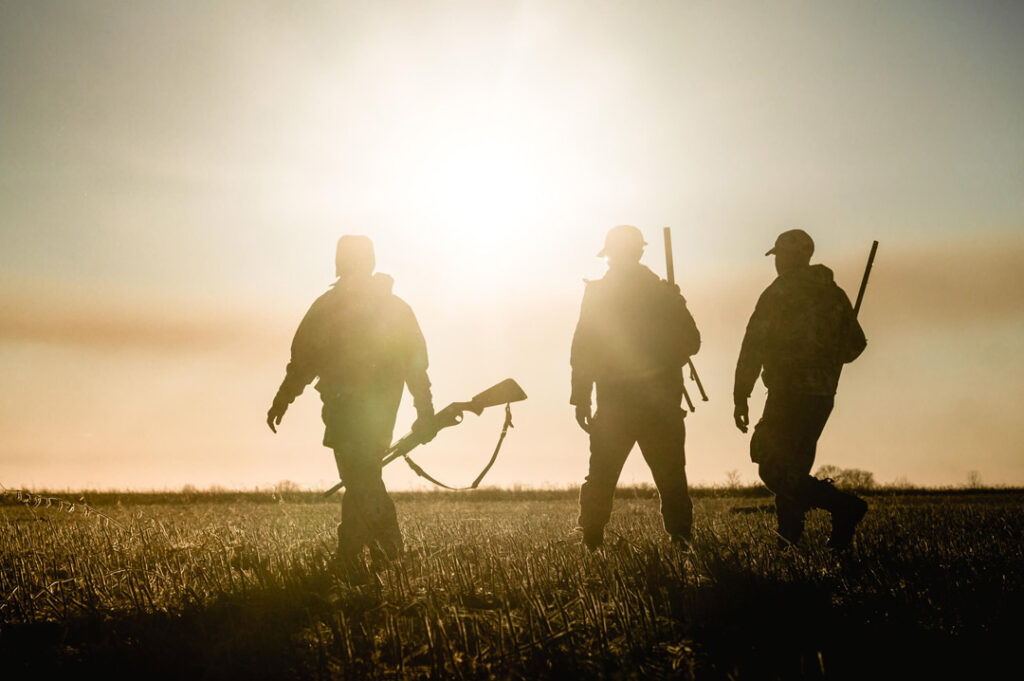[DYNAMIC-BLOGTABLEOFCONTENT]
Ready to Plan a Hunting Adventure for Plains Game or Dangerous Game Hunting Safari in Zimbabwe?
Zimbabwe is a big game hunter’s dream destination on a platter, with breathtakingly beautiful scenery, an abundance of game, and excellent hunting conditions.
When planning a hunting safari to Zimbabwe, the hunter needs to have a good understanding that it is not only about the perfect shot placement but also includes being aware and knowing the country’s relevant hunting laws and procedures. In this article, we will touch briefly on dangerous game hunting, available species to hunt as well as tourist destinations. Knowing the “admin requirements” will allow the hunter to have no hidden surprises during or after their hunting safari in Zimbabwe.
Did you know a TR2 form is a requirement for your Hunting safari in Zimbabwe?
A TR2 form, otherwise known as a hunting permit, must be stamped and issued by the Zimbabwe Parks and Wildlife Management Authority (ZPWMA) and issued to each hunter. The current cost for the TR2 form to be issued is $5.
This TR2 form is your authorization to hunt, declaration of harvested game during the safari, and the export application form. You must always have the TR2 on your person at all times. The operator and client determine the duration of the game hunting safari and not the government, as in certain other African countries. The duration of your hunt will depend on your targeted species.
Zimbabwe Hunting Outfitters
Zimbabwe hunting outfitters, or “operators” as they are referred to locally, must be registered and licensed by the Zimbabwe Tourism Authority. It is always worthwhile if you take a chance and book your hunting safari to request the Zimbabwe hunting outfitter’s license number. These operators can be verified through the Safari Operators Association of Zimbabwe (SOAZ). Queries via email can be sent to soaz@mweb.co.zw
A hunting return form and a completed NP/Cites form 11 may be a requirement as well, depending on what animals will be targeted. If there is any uncertainty, the ZPWMA is always available for any necessary clarification and is extremely helpful.
The minimum required calibers for rifle hunting in Zimbabwe
Zimbabwe categorizes hunting into three different classes and when planning your game hunting safari, you will need to take note of the following info:
- Class A Game: This includes thick-skinned animals, namely elephants, buffalo, and hippos. Hunters must use a weapon with a rifled barrel propelling a projectile not less than 9.2mm (.362 inches) in diameter with a minimum velocity of 3909ft per second.
- Class B Game: This includes thin-skinned animals, namely eland, lion, and giraffe. Hunters must use a weapon with a rifled barrel propelling a projectile not less than 7mm (.275 inches) at a velocity of not less than 3172ft per second
- Class C Game: This classification includes general plains game and members of the Dangerous 7, namely, the leopard, kudu, nyala, sable, waterbuck, zebra, and wildebeest.
- Hunters Black Powder Rifles may be used if they are a minimum caliber of .4 inches.
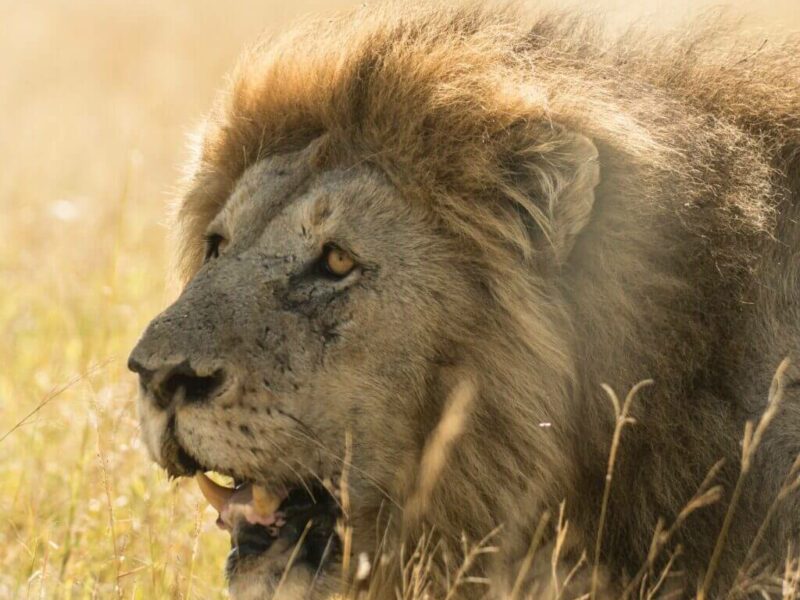
Temporary Firearm Permits
When arriving at the port of entry into Zimbabwe for your African safari hunting trip, a temporary firearm import permit can be obtained at no cost to the hunter. Any number of firearms can be imported but the limitation is 100 rounds per firearm. Fully automatic rifles are prohibited.
A permit for a handgun can be arranged via an outfitter who can assist, but it is to be noted that hunting with handguns is only permitted in certain areas. Before making a travel booking, the hunter needs to confirm with the airline that transportation of firearms is permitted. Over the last few years, there have been a few airlines that have discontinued this service.
It is always advisable to travel with notarized copies of your firearm licenses, passport, and a copy of your travel itinerary. Before leaving on your game hunting safari be sure to obtain a letter of invitation from the outfitter, as this will be required when arranging the temporary firearm permits.
Is Bow Hunting Legal in Zimbabwe?
Yes, bow hunting is legal in Zimbabwe. Bow hunting in Zimbabwe was only legalized in 1999, under new legislation. Bow hunting may only take place on tribal and private land.
Bow hunting is, however, illegal on National Park safari areas in Zimbabwe.
While Zimbabwe specializes mostly in dangerous game hunting, plains game hunting also offers many opportunities. Hunting of Class A game such as elephant, Cape buffalo, and hippo with a bow can only be done once the hunter has obtained a bowhunting permit which is granted by the General Director of Zimbabwe Parks and Wildlife Management Authority (ZPWMA). In this instance, it would strongly be suggested that applications be made months in advance before booking the game hunting safari.
Bowhunting may only be conducted using compound bows. A special permit again is required for the use of recurve, longbows, and crossbows. All these additional permit applications are admin-orientated and come at a substantial cost.
Bowhunting Requirements (Law)
- Class A Game, namely Elephants, Buffalo, and Hippo. The Bow Kinetic Energy must not be less than 80ft/lbs. Arrow weight 700 grain.
- Class B Game, namely Giraffe, Eland, and Lion. The bow Kinetic Energy must not be less than 77ft /lbs. Arrow weight 695 grain. Broadheads must only have two cutting edges.
- Class C Game, namely gemsbok, zebra, wildebeest, nyala, sable, waterbuck, tsessebe, and of course the “grey” ghost kudu. The Bow Kinetic Energy must not be less than 70ft/lbs. Arrow weight 618 grain.
- Class D Game, namely impala, reedbuck, duiker, jackal, sitatunga, etc. The bow Kinetic Energy must not be less than 56ft/lbs. with a minimum arrow weight of 463 grains.
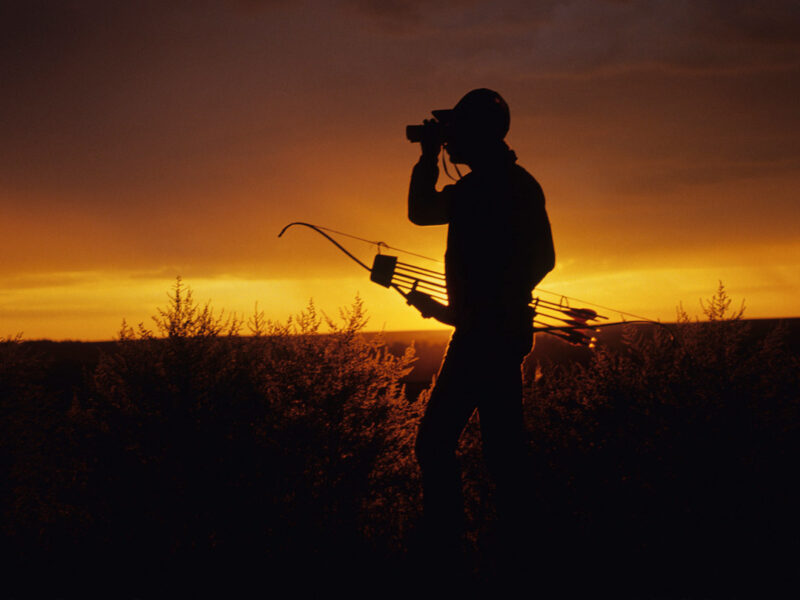
Hunting Guides and Professional Hunters
It is illegal for a non-resident to obtain a Zimbabwean Professional Hunter’s license. Therefore, it would then be illegal for them to conduct a game hunting safari in Zimbabwe.
Zimbabwe has allocated thousands of acres of land to the conservation of habitat and has rich biodiversity through sustainable hunting practices.
The Zimbabwe Department of National Parks and Wildlife (ZDNPW) along with the Zimbabwe Professional Guides Association (ZPGA) ensure the highest ethics and morals of their members. This is achieved through strict apprenticeships, ongoing monitoring, and adherence to the code of conduct and the governing constitution that members have pledged to uphold. To qualify as a hunting guide in Zimbabwe takes two years. To be eligible for the program applicants must have a first aid certificate from the Red Cross and attend and pass shooting exams, sponsored by the ZDNPW and the Zimbabwe Shooting Association (ZSA).
The Zimbabwe Hunting Guides are the highest qualified both in Africa and worldwide.
All members undergo rigorous training on animal behavior and life cycles ensuring they understand which animals to select sustainably. All guides practice fair chase.
All professional hunting guides must comply with national wildlife laws, including tourist hunting regulations. All hunters planning a game hunting safari to Zimbabwe need to ensure that their guides as well as the safari operators are registered and belong to suitable organizations.
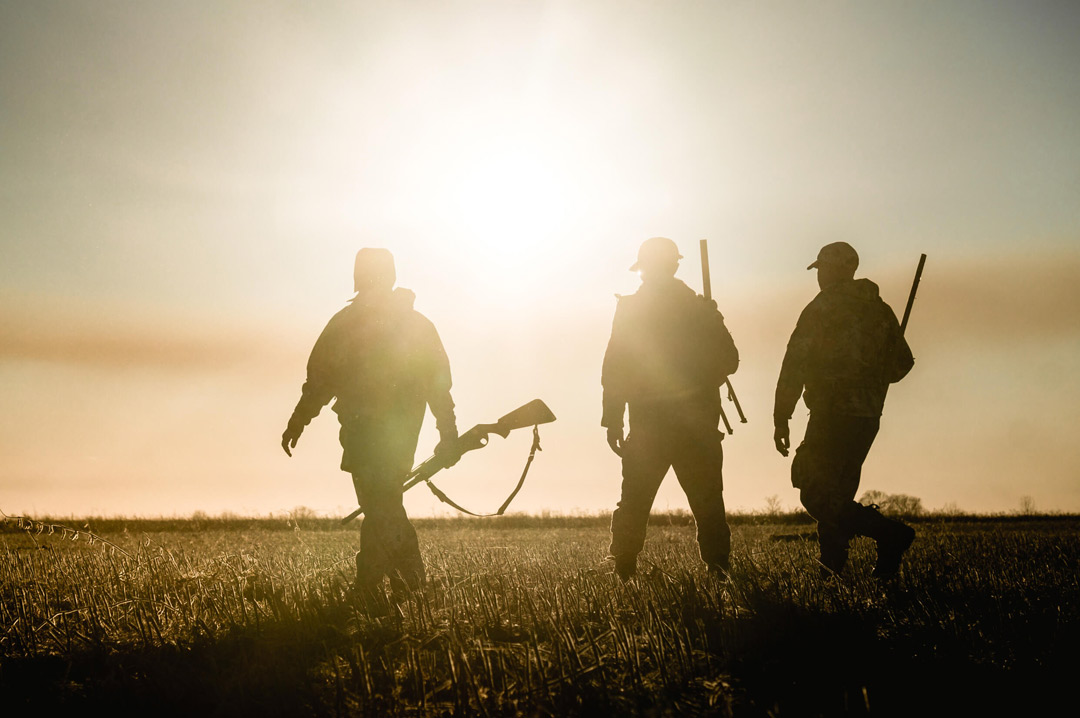
Dangerous Game Hunting Zimbabwe
When booking an Africa hunting trip, Zimbabwe rates as a top destination for dangerous game hunting, with four of the Big 5 species found in Zimbabwe, namely the elephant, Cape Buffalo, lion, and leopard. The other dangerous seven members that are available include a hippo and Nile crocodile which make for a good combo game hunting opportunity
Zimbabwe is home to more than 100 000 elephants with approximately 50 000 of these being found in Hwange and the Zambezi Valley.
All game hunting must be conducted on foot and the hunter needs to be a minimum of 50 yards from a vehicle and not nearer than 440 yards from a waterhole. Hunting with dogs is illegal.
End-of-season discount hunts are also something to keep an eye out for, as bargains can be found but in these instances, the hunter needs to be able to travel at relatively short notice.
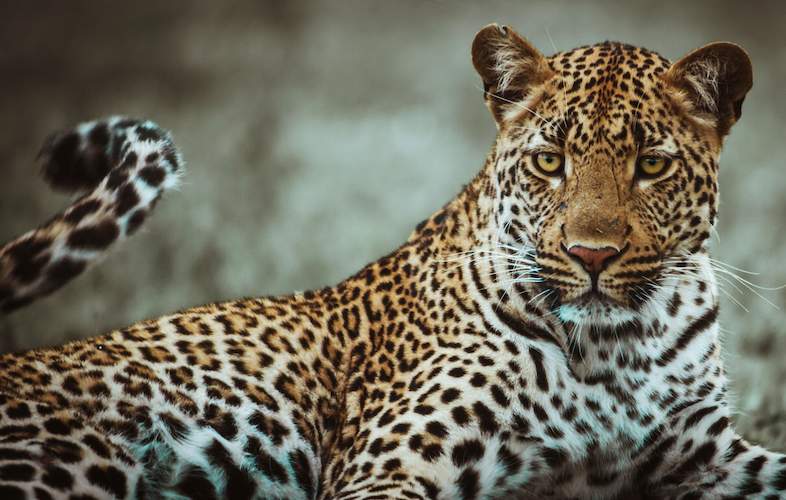
Hunting Laws and Regulations in Zimbabwe
Different laws apply to different areas when hunting in Zimbabwe, whether it be for plains game or dangerous game. When booking an Africa hunt, it is always worthwhile to spend a little time and effort doing some research and familiarizing yourself with them as they do change from time to time.
Three different sets of game hunting laws apply to the three areas.
Communal and Tribal Areas
- Night hunting is only allowed for certain species. Lion, leopard, and bush pigs are included. The use of callers, artificial lighting, and night vision scopes is allowed.
- Equipment that may be used includes handguns. Bow hunting is also allowed.
- Operators need to operate ethically and within the bounds of the law.
Private Land Areas (known as alienated areas)
- The operator uses their own standards if they operate within the parameters of the wildlife protection laws.
Special permits can be obtained to hunt leopards with dogs. - Nocturnal hunting may be conducted using artificial light, callers, and night vision scopes.
- Bowhunting and game hunting with a handgun is legal.
Zimbabwe Parks Area
- Vehicles may be used to spot animals, but hunters may not shoot from a vehicle.
- The utilization of dogs for hunting is illegal.
- Bow hunting is not allowed.
- A vehicle may not be used to chase or drive animals.
- Hunting needs to take place on foot and shots may not be fired within 440 yards of the vehicle.
- Hours of hunting are regulated as follows: during daylight hours, half an hour before sunrise, and half an hour after sunset.
Zimbabwe Visa Requirements and Health
On arrival in Zimbabwe for your hunting safari, you will need to purchase your Entry Visa Stamp for $20. When leaving Zimbabwe, the hunter will be charged a $20 exit fee, but this is usually included in your airfare cost.
Zimbabwe is well known for cash shortages. Hunters may not leave the country with more than $1000 unless it can be proven that the cash legally entered Zimbabwe. Declare your cash when entering and ensure you do not lose your blue receipt. Without proper receipts, cash over $1000 will be confiscated by the Zimbabwean authorities.
Always check with your travel agent in terms of updates regarding visa requirements and ask for any information about health vaccines. Zimbabwe is a malaria area in areas below 1200m sea level. Be sure to have a chat with your local healthcare practitioner or clinic who will assist. Doxycycline is suitable for malaria and costs less than Malarone. Malarone only needs to be taken two days before your trip while Doxycycline needs to be taken four weeks.
Tourism in Zimbabwe
Zimbabwe is becoming renowned for its tourist attractions with the latest revenue revealing that the country generated over US$ 600 million. Zimbabwe has actively been working on improving local travel and infrastructure to attractions as most have historically been found in remote areas.
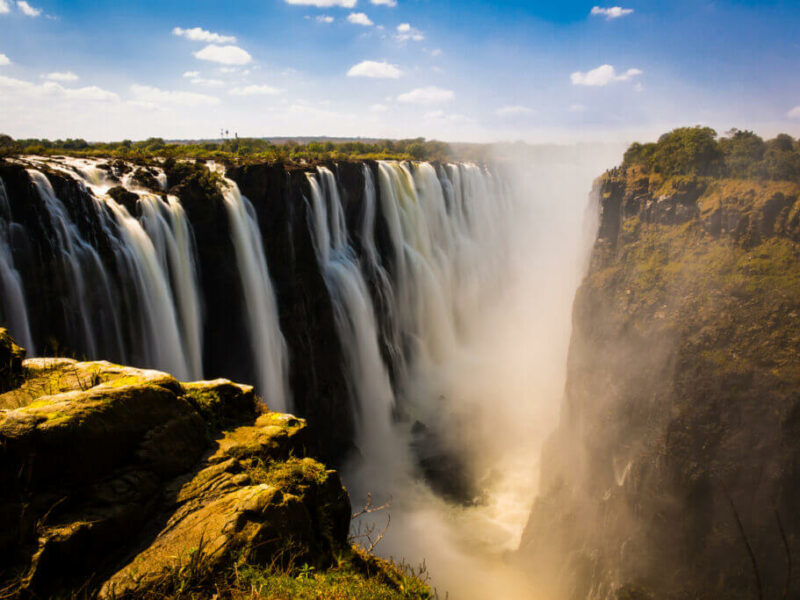
Victoria Falls
At the top of the list of attractions can only be Victoria Falls.
Interesting Facts about Victoria Falls:
- The largest waterfall in the world and can be seen from two countries, namely Zambia and Zimbabwe, and falls within two national parks. The Zimbabwean side has 75% more viewing points than the Zambian.
- Over 130,000,000 million gallons of water cascade over the falls every minute.
- The falls were named after the famous British explorer, David Livingston.
- It is one of the seven wonders of the world.
- After a long game hunting safari, it’s good to know that you can swim right to the edge of the falls!
- Victoria Falls International Airport allows easy access and is situated only 28 miles South of Victoria Falls. There are some fantastic hotels in the vicinity. Hunters should consider including a visit when planning their African hunting adventure.
Lake Kariba
Did you know that Lake Kariba is the world’s largest artificial lake and reservoir by volume and is situated along the border of Zambia and Zimbabwe? It covers an area of 2150 square miles and is a sought-after destination for dangerous game hunters focusing on crocodiles and hippos.
A Kariba houseboat is the ultimate relaxation holiday including game viewing, fishing, and breathtaking views.
There are many other attractions in Zimbabwe including the Chinhoyi Caves and plenty of famous national parks such as the Zambezi National Park, Limpopo National Park, and the Hwange National Park that are well worth a visit.
Zimbabwe as a Hunting Destination
Hunting in Zimbabwe remains a focus for international hunters, whether they are concentrating on dangerous game hunting or plains game hunting. Having visited the area on numerous occasions, I can definitely recommend it as a top hunting destination in Africa.
